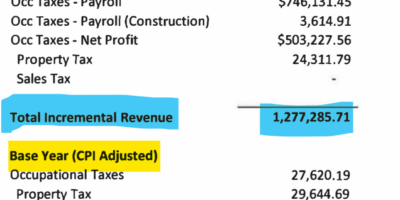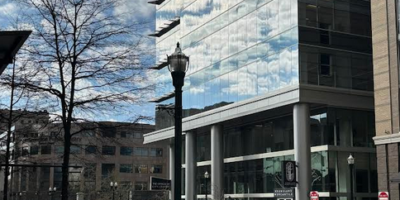Incarceration and voting rights, part 2
By Christian L. Torp
Editor’s note: in our last issue, Christian discussed the disproportionate incarceration of minorities, especially blacks, in the U.S.
During the Reconstruction Era, the period immediately following the Civil War (roughly 1865-1877), the national consciousness was acutely aware of the danger that the newly emancipated slaves could again be relegated to a form of slavery. The Reconstruction Amendments attempted to forestall that danger. The Thirteenth Amendment abolished slavery (except for those incarcerated): “Neither slavery nor involuntary servitude, except as a punishment for a crime whereof the party shall have been duly convicted, shall exist within the United States”; the Fourteenth Amendment guaranteed citizenship for all peoples born or naturalized in the U.S.; the Fifteen Amendment declared that the right to vote shall not be denied or abridged by the U.S. or by any state on account of “race, color, or previous condition of servitude.”
On one hand, the U.S. Constitution clearly shows a substantial fear that people could be re-enslaved under color of law as all three of the Reconstruction Amendments grant Congress explicit power and authority for enforcement; the Fourteenth Amendment addresses the issue by saying: “The Congress shall have power to enforce, by appropriate legislation, the provisions of this article.”
On the other hand, more than one hundred years later, racial minorities make up a grossly disproportionate number of those incarcerated and disenfranchised in Kentucky. How could this be explained?
Reactionary history
Section 145 of the Kentucky Constitution, the provision that bars those convicted of treason, felony, bribery, or “high misdemeanor,” those incarcerated, and “idiots and insane persons” from the ‘right’ to vote, was ratified in 1891 and amended in 1955. I believe the times in which this occurred are telling. Though I have yet to find any specifically Kentucky references, the historical record is clear that similar restrictions on the right to vote were done in similar ways in nearby and formerly slaveholding states at about the same times—and for less than laudable (i.e. racist) reasons. Moreover, these two eras, the 1890s and 1950s are noted as times of discrimination and nativism (think: McCarthyism).
Throughout the South during the late nineteenth century, the definition of crimes resulting in disenfranchisement grew dramatically. In the 1870s and 1880s, minor property crimes were redefined as felonies in many Southern states; several states amended or revised their constitutions to define larceny or petit larceny as disenfranchising crimes. Finally, southern courts took to interpreting existing laws to include misdemeanor grade offenses as crimes of disenfranchisement. The historical record is rife with sordid examples of why so many things were criminalized; there’s no doubt about why it was done.
In 1875 The New York Times declared that the “evident purpose” of these changes was “to prevent colored men and poor white men from exercising the right of suffrage.” Green B. Raum, a lawyer, Union solider, and U.S. Representative from Illinois, wrote in 1884: “Negroes are frequently arraigned before petty magistrates on the most trivial charges of larceny, and a conviction in these petty courts is sufficient to disfranchise them forever. This conviction is readily obtained, and the whole proceedings clearly indicate, in many cases, that the prosecution is merely a pretext to deprive the negro of his vote.” Doesn’t that sound like how the “War on Drugs” is used today?
It is now more than a century later, the nation has its first black president, and yet Kentucky is one of only two remaining states that permanently disenfranchise all persons upon a felony conviction without a pardon from the governor. (The other state is Robert E. Lee’s own home state of Virginia, of which Kentucky was a part at the nation’s founding.) And though the Fifteenth Amendment specifically authorizes and empowers the U.S. Congress to fix this predicament—arguably demands it—Kentucky still has the second highest African-American disenfranchisement rate in the nation.
Our neighbors Ohio, Indiana, and Illinois automatically re-enfranchise all citizens upon their release from incarceration. West Virginia and Missouri automatically restore an ex-felon’s right to vote upon full completion of their sentence. Tennessee allows former felons to apply to the Board of Probation and Parole for restoration of their voting rights upon completion of their sentence (except in cased of certain serious felonies). All in all, the fact that so many nearby states allow former felons to vote doesn’t mean that they believe ex-offenders are more or less likely to commit a crime; it just means that those states think ex-offenders are still American citizens. (Maine and Vermont even allow persons convicted of felonies to vote from prison.)
Tough on crime?
What if we based our judgment about re-enfrachisement on crime prevention alone, just that and nothing else—let’s call it the “tough on crime” approach. We’d then ask: Does disenfranchisement have any beneficial effect on reducing recidivism, i.e. stopping future lawlessness? In a word, no—just the opposite has been shown. Reintegrating individuals into their community and empowering them has been shown to give them a vested interest in the health, future, and well-being of their society.
The more fully a former criminal is integrated into their community, the less likely they are to return to crime or resort to it once they’ve run out of other options. In fact, reducing the level to which an individual can return to law-abiding society increases the likelihood of their re-incarceration. (I would even argue that the prevalence of background checks as a precondition of employment exacerbates this problem.)
In other words, don’t complain about crime if that’s the only job you allow former felons to have.
The fix
How can we fix this? What needs to be done to have the America we learned about in Civics class? The solution to this problem in Kentucky lies in one of two places. The simplest, though least direct or effective means is your gubernatorial vote this fall (if you’ve got a vote, that is). The chief executive officer of the state has the pardon power, the “executive pardon” laid out in Section 145 of the Kentucky Constitution.
Our two most recent governors illustrate how this actually works. Former Governor Ernie Fletcher required former felons to submit a poll-test like essay (poll tests are illegal), along with character references in their application for pardon. While Governor Beshear has simplified the process, his process does not specify when, or if, any reply will be received. Beshear’s process is also devoid of criteria as to what constitutes a successful application.
Moreover, an executive pardon is a discretionary privilege of our governor. Even though the Federal Voting Rights Act of 1965 makes it clear that “[n]o voting qualification or prerequisite to voting or standard, practice, or procedure shall be imposed or applied by any State or political subdivision in a manner which results in a denial or abridgment of the right of any citizen of the United States to vote on account of race or color,” the governor can do about whatever he or she wants, so long as the governor doesn’t say that an applicant’s protected class (i.e. race, color, religion, etc.) was a factor in the decision.
The second fix for this injustice is by amending the Kentucky Constitution.
Since 2005, the Restoration of Voting Rights Coalition (ROVRC) has been working to introduce and pass the Restoration of Voting Rights Act or House Bill (HB) 70. The ROVRC is a group of diverse citizens’ organizations working toward a just society including the Kentuckians for the Commonwealth (KFTC), the ACLU, the NAACP, the Kentucky Council of Churches, and the Central Kentucky Council for Peace and Justice. Because granting former felons the right to vote after completion of their sentence would be a change to the Kentucky Constitution, it needed a referendum to be put on the ballot after it passed the House and Senate. HB 70 would put a Constitutional Amendment on the ballot so that the people of Kentucky can decide whether or not we want to carry on the racist remnants of the nineteenth century.
Unfortunately, every year that HB 70 has been introduced, it gets held up in committee by one of our state’s more ‘progressive’ legislatures—a legislature that obviously cares about the people’s wishes by blocking a referendum that would allow the people to decide themselves. In other words, it is clear that some of our elected officials, namely the chair of the Senate State and Local Government Committee Senator Damon Thayer of Georgetown, Kentucky (Senate District 17, Grant, Owen, Scott and part of Kenton counties), don’t believe that we can govern ourselves.
Even though HB 70 passed out of the House on February 10, 2011 with a vote of 77-21, Thayer blocked the bill, not letting it out of committee. Thayer won’t even trust us with the option of saying “yes” or “no.”
And that’s how it is. Even though it can be shown that re-enfranchisement statistically reduces recidivism and therefore the crime rate, and even though the linkage between felony disenfranchisement and late nineteenth-century racist politics are clear, we still haven’t done away with this injustice in Kentucky. I feel really proud to be a Kentuckian right about now, don’t you?
The first martyr of the American Revolutionary War was a man of African descent, Crispus Attucks, who lost his life to the Redcoats in the infamous Boston Massacre. And despite the fact that the United States now has its first African-American at the helm as commander-in-chief, there’s a statistical probability that Crispus Attucks would be a disenfranchised former felon and unable to vote if he were alive today; in fact, if the first martyr of the Revolutionary War were in Kentucky now, he’d have a 1 in 4 shot of not being able to vote…but he was certainly good enough to be shot.
Christian is an attorney working in, among other areas, criminal, civil, family, and employment law.




Leave a Reply